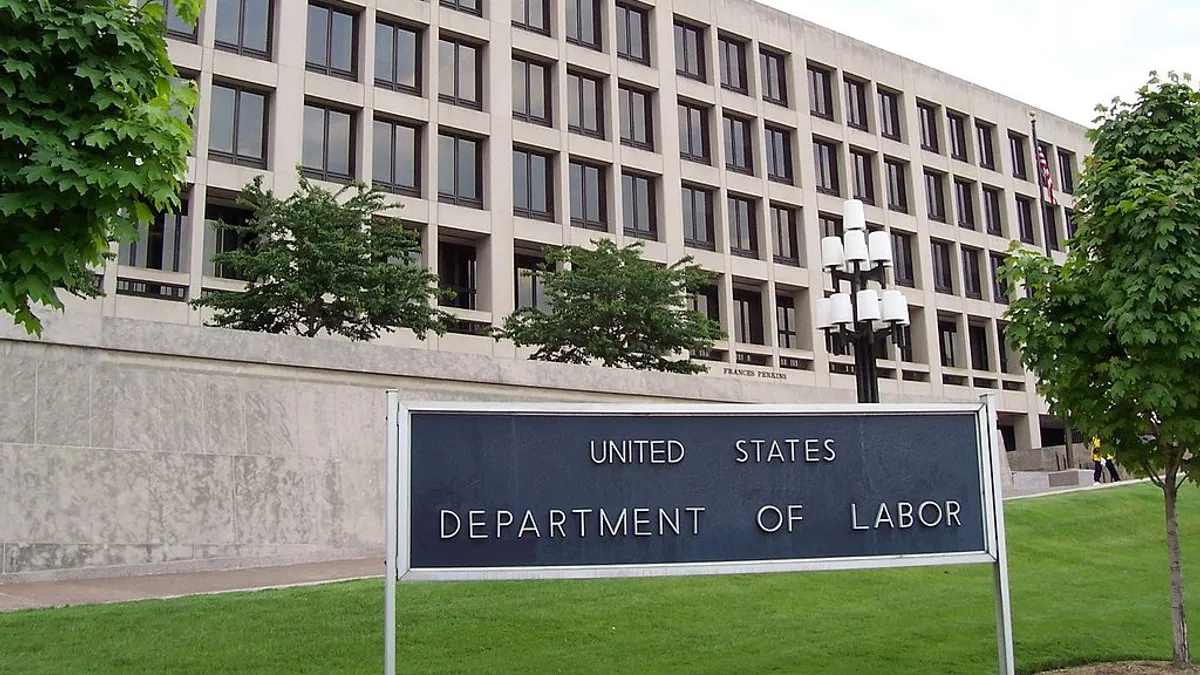Dive Brief:
- After holding steady at 3.7%, the unemployment rate dropped in September to a record 3.5%, according to the U.S. Department of Labor's Bureau of Labor Statistics (BLS) monthly jobs report — the lowest in 50 years. But while the U.S. gained 136,000 unadjusted nonfarm jobs in September, that number is a decrease from adjusted August numbers of 168,000 jobs gained.
- Industry job growth was up overall in September, most notably in healthcare, with additional 39,000 jobs, said BLS. Employment in professional and business services trended upward in September, adding 34,000 jobs for the month, for a monthly average increase of 35,000 for 2019. However, job numbers remained unchanged in other major industries, including mining, construction, manufacturing, wholesale trade, information, financial activities, and leisure and hospitality, according to the report.
- The labor force participation rate was unchanged in September, holding at 63.2%, while average hourly wages also remained steady.
Dive Insight:
The moderate jobs gain in September and drop in the unemployment rate was generally taken as positive news, especially amid predictions of a economic downturn. But, according to the Economic Policy Institute (EPI), the continued slow wage growth may be cause for concern; though EPI noted September's results are only one month's figures, the left-leaning organization said that future wage outcomes bear watching.
Some of that shift could reflect further reliance on contingent workers, experts told HR Dive. Contingent worker wages are usually discussed in an entirely different context from employee wages. This new equation has prompted some employers to consider whether full-time employees are even necessary for some positions, further reducing willingness to raise wages overall. "Businesses are starting to think about work in a fundamentally different way and becoming more focused on filling a skill need, not just a job," Rebecca Henderson, CEO of Randstad Global Businesses, said in a media statement.
The New York Times also reported some concern over wage growth numbers from various economists: "Trade uncertainty is why we’re seeing a jobs slowdown and why the wage numbers are slowing," Torsten Slok, chief economist at Deutsche Bank Securities, told the Times. Whether the economy slows down or continues apace, HR can take steps to ensure organizations are ready for the future by having a plan in place should the worst happen.














